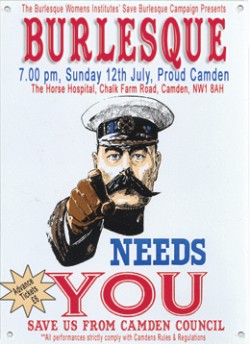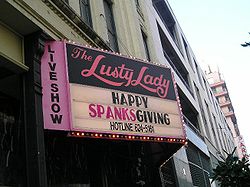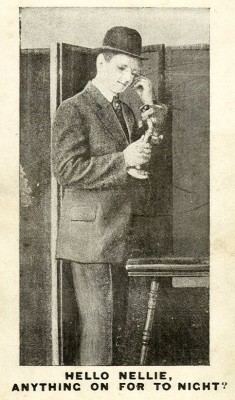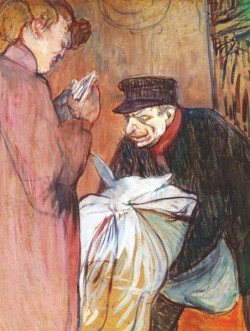
Some people think swinging and polyamory have nothing to do with the sex industry and are offended to be associated with it. In my conception, swinging parties and sex clubs do form part of the industry, because money is exchanged for opportunities to have, watch, smell and listen to sex – one’s own and others. The managers of venues often provide possible partners for your pleasure – sex workers. And, on the other hand, many customers in sex-industry bars and clubs spend time and money without ever buying ‘sex’ itself. The lines supposedly dividing these different entertainment enterprises are very blurred.
When people are offended by this inclusion, it means they think the sex industry is something negative. Since I don’t see it as negative, I’m not insulting anyone who’s associated with it. Rather, I’m engaged in figuring out how and why people think they can differentiate between commercial and non-commercial sex. As far as I can see, after studying it for many years, there’s no way to clearly separate them. Which is a result! It’s a result to find out that the separate categories they teach us about aren’t true, or are, at least, questionable. If you’re more interested in this, consider the cultural study of commercial sex, in its original conception and then later.
Morrissey’s original article moves from Ireland to Berlin and includes many entertaining details. Here I’ve excerpted only the bits most relevant to the sex industry.
More sex with strangers, The Independent (Ireland)
By Deirdre Morrissey, 30 August 2009
. . . I asked Dominique how she came to open a sex club that hosts parties with titles such as Angel in Bondage, Saturday Night Fuck and Circus Bizarre. “Sex is one of the most interesting aspects of my life. I study it, I talk about it, I do it and I teach it,” said Dominique, in a very matter-of-fact tone. “In 1984, when I was 17,” she continued,
“I started working as a table dancer. Then later I began working as a dominatrix, and shortly afterwards I found out that my mother also worked as a dominatrix. So, the sex industry is in my blood. When I was 20, my mother wanted to retire. . . But she reluctantly agreed to manage my S&M studio and leave punishing the slaves up to me. It was hugely successful: 10 years later we had a thriving family business with 20 girls working full-time.
“Then, four years ago,” she says, “myself and my partner were . . . at the most notorious sex resort in the world, Hedonism, in Jamaica. While lying in a hammock one day, we looked at each other and decided to open our own fantastic sex club back home in Berlin. . . where the primary focus would be on creating an environment where visitors, all driven by the same longings and desires, could meet to enact erotic fantasies and sexual dreams.”
. . . From the exterior, the club could be mistaken for somebody’s home except for the name Insomnia over the door. . . . Rory paid a cute brunette kitted out in provocative lingerie and high heels a cover charge of €20 for the two of us — very reasonable, given the nature of the club. . . . We went up a few steps and into this huge, red-lit ballroom with a ceiling that reached for the sky. A huge dance floor, with a bar down one side, was littered with deviants. Hardcore porn was being projected onto a massive, 40ft cinema screen overlooking the dance floor. Topless bartenders were shaking cocktails and above the bar was a mural of a giant, cartoonised, glammed-up orgy. . . .
The dance floor is where the foreplay takes place, but little adjoining rooms are where the real action is. A couple of scary girls had a big henchman stripped down to a red thong. The muscles on his arm bulged out either side of a thick metal armband and he wore a studded metal collar around his neck. He was bound in chains and while one of the girls was whipping him, the other tightened his leash each time he howled. . . . In the jacuzzi a couple were having fun while their respective partners watched.
A crowd was gathered around some action in a little side room. . . Some kind of operation was being performed on a girl who lay completely exposed and bound to a medical contraption of some sort. . . . a mezzanine level overlooking the dance floor. The entire area was taken up by several enormous tented beds occupied by couples, threesomes, foursomes and, in some cases, whole teams. . . .




























